A group of deminers, doctors and the personnel ensuring their safety has traveled from Armenia to Syria to provide humanitarian relief in Aleppo. The group of 83 has worked there since February 8.
How have the Armenian experts settled in Aleppo and what have they managed to do until now? Mediamax has talked about it with Director of Armenian Center for Humanitarian Demining and Expertise Ruben Arakelyan, who paid a four-day visit to Syria and met with representatives of the UN Mine Action Gateway as well as Syrian and Armenian political and public figures.
The general tasks
The expert group has several areas of focus: demining, defusing of explosives, raising awareness of mines in schools and the community, and medical services.
Humanitarian demining means total clearance of the area even of the smallest pieces of metal. It is conducted in the Armenian-populated areas and the territory adjacent to the group’s base.
In general, there are no land mines in Aleppo, but there is ammunition that did not explode at the strike and is now left in the ground and the buildings. It is extremely dangerous, and people (especially children) can easily become victims of an explosion if they approach the ammunition out of curiosity.
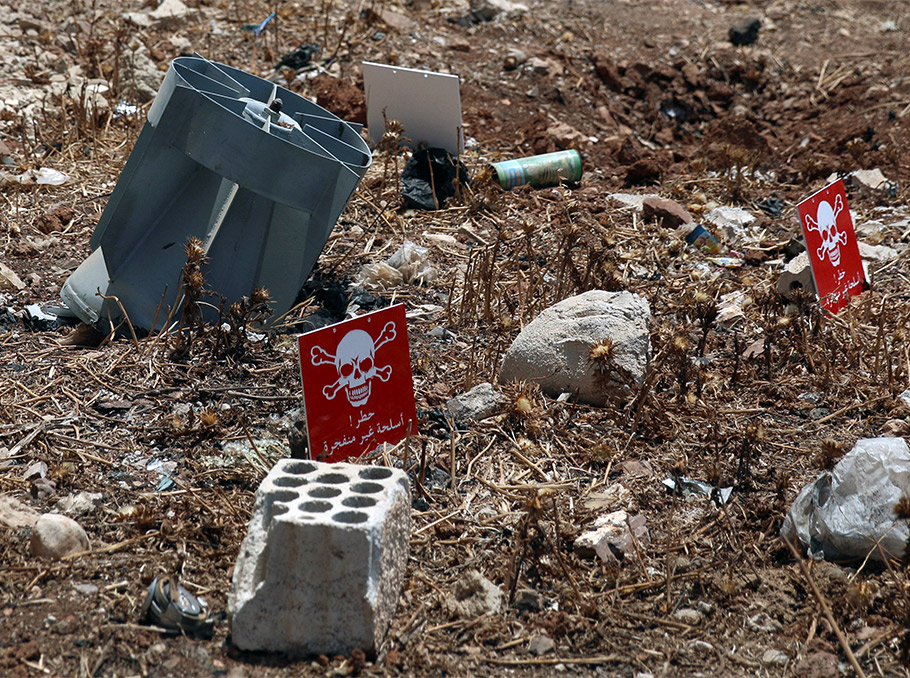
Photo: REUTERS
Our main task is to collect the unexploded ammo and submit it for elimination, which is done by the Syrian army’s sappers. We will not blow up the ammo in any case.
The doctors work at the hospitals of Aleppo. It is a multi-field group with a gynecologist, dermatologist, physician, surgeon, etc. The doctors work with local population and provide free-of-charge medical services.
Areas of priority
The priority is the areas of public use and lands adjacent to water sources, etc. Therefore, the Armenian experts will also clear the surrounding territories.
Contrary to the areas of demining in Armenia, for instance, the experts have to deal with self-made explosives in Aleppo. They are more dangerous because the explosive device is activated remotely.
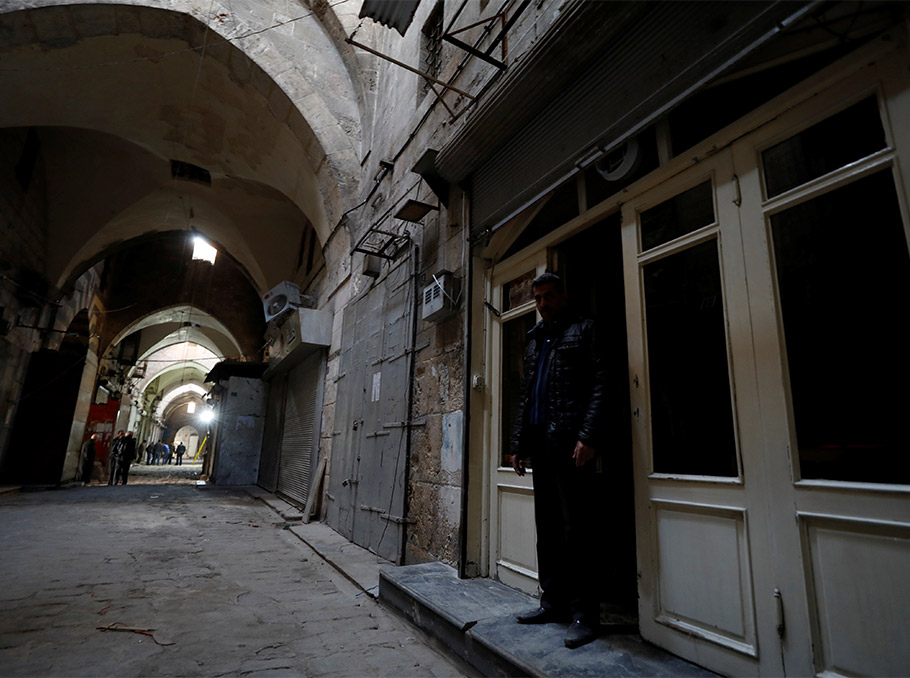 In Aleppo
In Aleppo Photo: REUTERS
Usually, it is the local residents who identify the mined areas because they move there a lot and they notice the ammunition. We cannot plan which areas to clear, so for several days our group examined the place, asked the local people for tips, and singled out concrete spots. It is all done now. The deminers outline tracks, clear them and use them to get to the dangerous zones. In the end they put signs telling the residents of Aleppo that the given zone is clear from mines and unexploded ammo.
The expert group’s base
The Armenian humanitarian mission stays at the base near Aleppo. The building is furnished and renovated, so the group has normal living conditions.
They are paid by different bodies, including our Center and the Armenian Ministry of Defense.
The doctors don’t have concrete working hours, and they provide medical services whenever necessary.
The deminers do have a schedule: their work begins at 9 a.m. and ends at 4 p.m. At that time the Syrian army starts blowing up the mines that the deminers have found.
I believe the group will have to stay in Aleppo for six or seven months.
The security of Armenian mission
The group is not armed. Their security is ensured by Armenia’s military police officers. Although the military police is a part of the Armenian army, it is not a combat unit and it functions as police force.
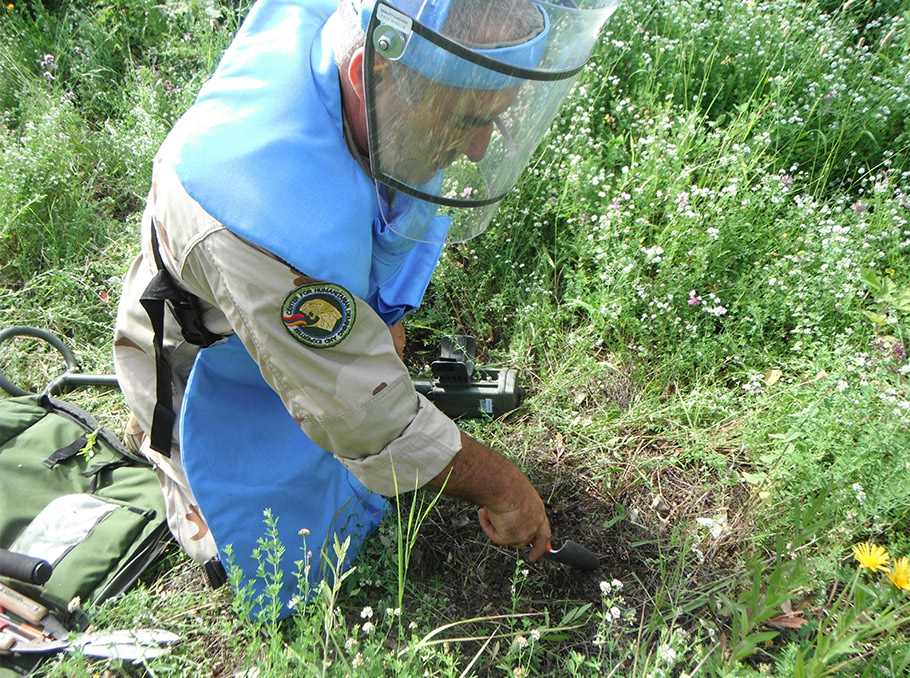 Armenian deminers (archive photo)
Armenian deminers (archive photo)Photo: Armenian Center for Humanitarian Demining and Expertise
They patrol the area to protect the humanitarian mission from possible attacks and provocations and to ensure its security.
Contacts with Syrian army and Russian troops
Contacts and cooperation with the Syrian army and Russian troops is related strictly to security purposes. They will defend the humanitarian mission in case of possible attack along with the Armenian military police.
The only contacts the mission has with the Syrian side are related to the elimination of the explosives they discover.
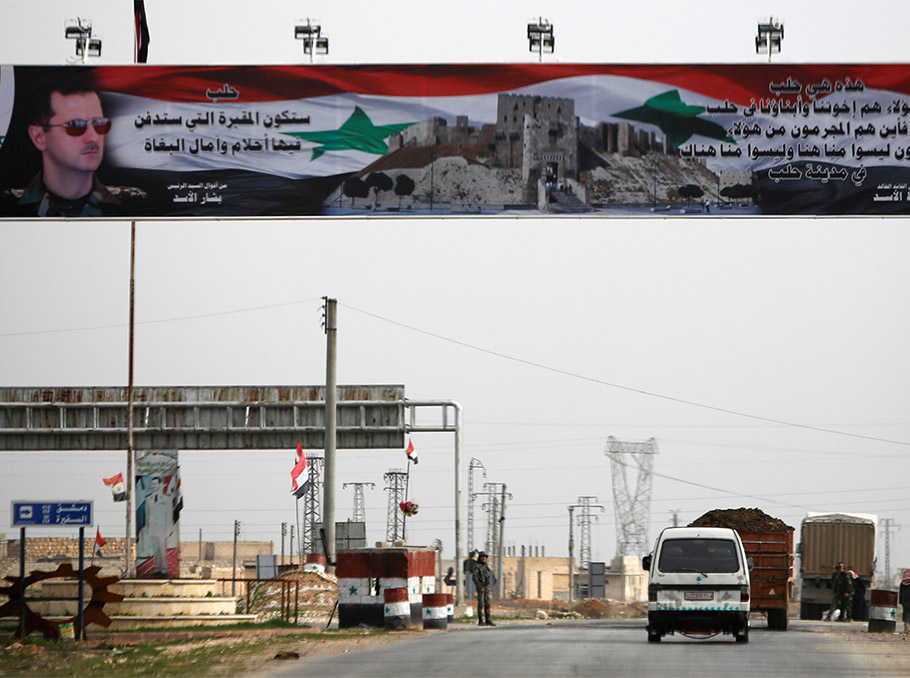 In Aleppo
In Aleppo Photo: REUTERS
Cooperation with Russian troops is connected with logistics. As you know, Russia helped transport Armenian mission to Aleppo. We have certain exchange of experience with Russian sappers, because they have been in the area longer, so they know the issues better and are more skillful when it comes to defusing the mines there.
Relationship with the community
In a few days the primacy will hold the ceremony of blessing of Armenian national flag and flag of our organization. The relationship with the Armenian community of Aleppo is very good.
Our experts were asked to limit movement in the evening for security purposes, which is why there are no active contacts yet with the Armenian population.
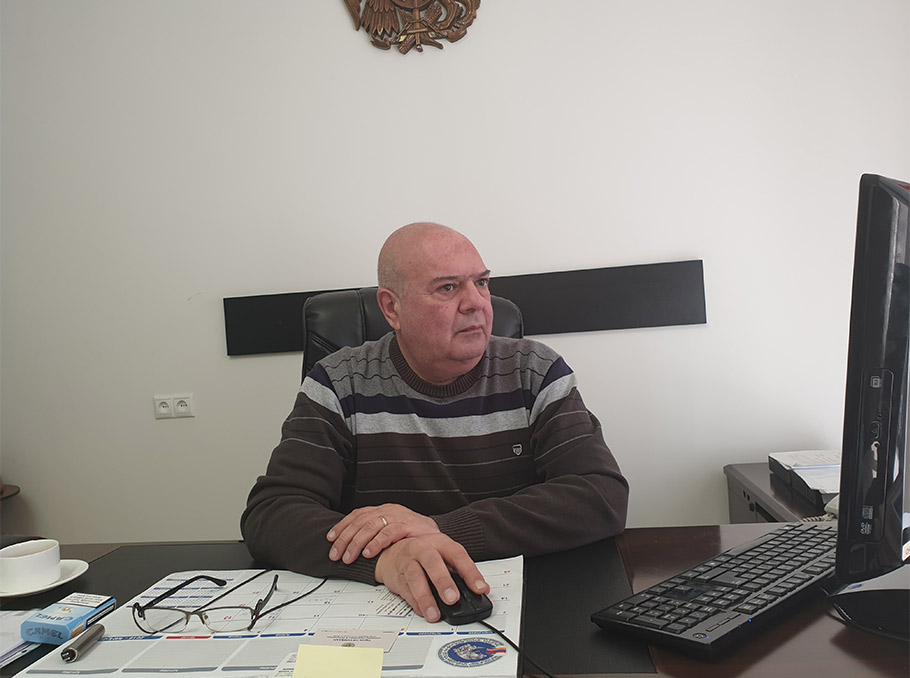 In Aleppo
In Aleppo Photo: Mediamax
I met with Armenian Ambassador to Syria Tigran Gevorgyan in Damascus, who said that our humanitarian mission received very positive feedback. Some people in Armenia claim that this mission jeopardizes Syria’s Armenian community, but that is not true. Local Armenians have a positive view on the mission. As for the claims that the Armenian community is against it, they are simply false. Why should these people view our work negatively? They receive medical services, their roads are cleared from mines, their children are taught how to move safely in a dangerous zone.
I also met with a former government official, public and political figure, Dr. Eng. Yahia Awaidah, who manages a non-governmental organization and makes huge contribution to the relief efforts. He expressed appreciation for our mission and said that the Syrian people thank us, as they know we are helping them even though we [Armenia] have security issues ourselves.
Both sides remember how Syria helped the survivors of the Armenian Genocide. We saw war too, and we understand the consequences and challenges that follow a disaster of that kind. Once, we were waiting for help too.
UN reaction
I also introduced Ahmad Javed, United Nations Mine Action Service (UNMAS) Syria Program Manager, to the purpose of our mission. The UN welcomed the mission’s goals and the program for raising awareness of mines among school students and asked us to cooperate with them and distribute their mine awareness brochures in the communities and schools.
Humanitarian demining has five components: notification of mine risk, assistance to mine victims, mapping, demining itself, and the propaganda of mine elimination. The standards are in development and our UN colleagues asked to involve our experts in the process and hear out their suggestions.
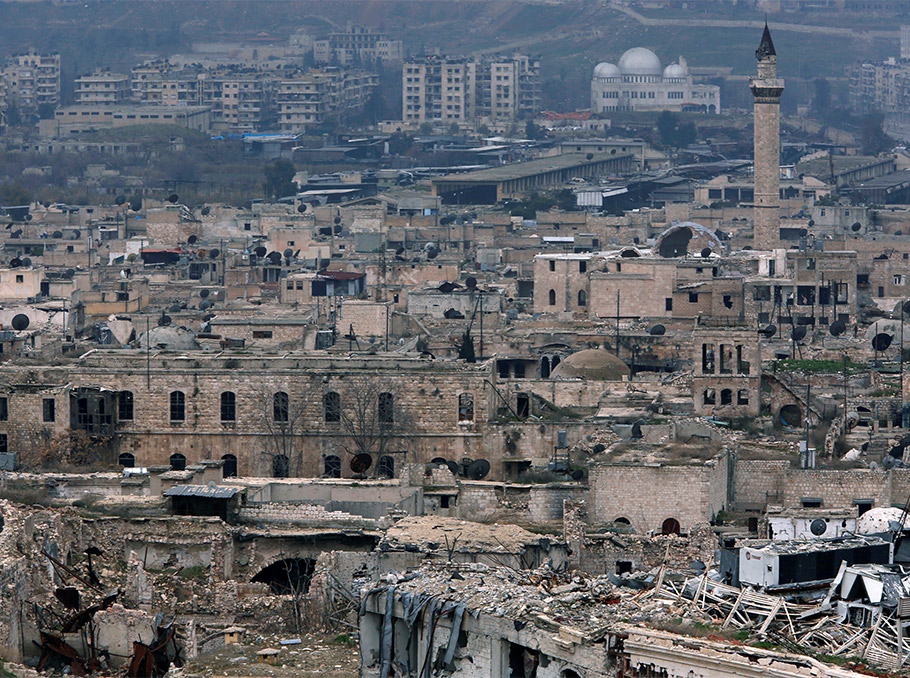 In Aleppo
In Aleppo Photo: REUTERS
We also offered to host 15 Syrian children and their 5 guardians at a summer camp in Armenia, which we organize annually for children who were impacted by mines. There are some financial issues with transportation, so we are trying to settle them with the help of Dr. Yahia Awaidah.
The fact that UNMAS is ready to cooperate with Armenia’s humanitarian mission speaks volumes about the response it met from the international organization.
Marie Tarian









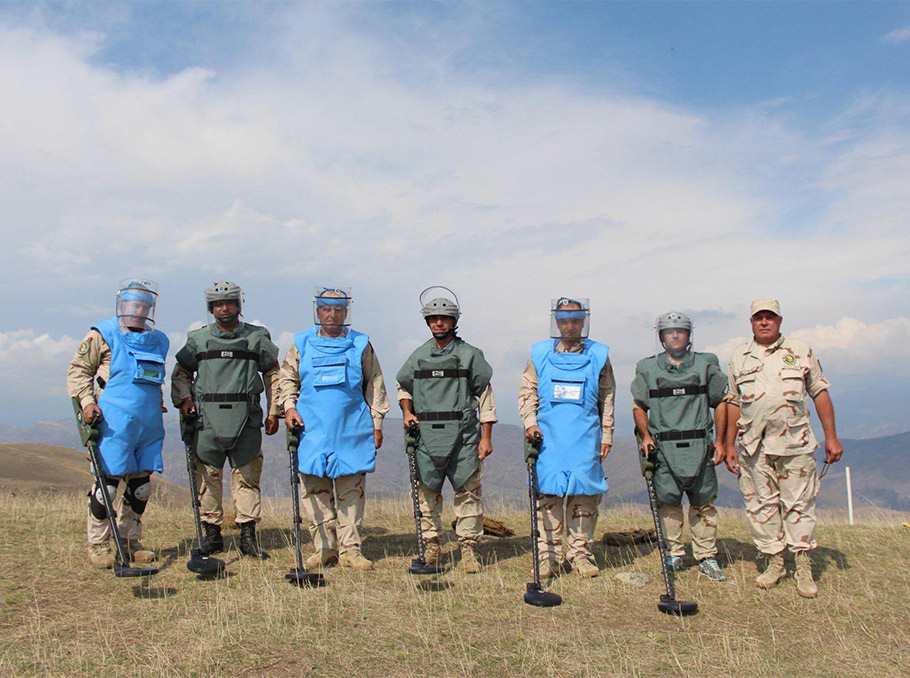
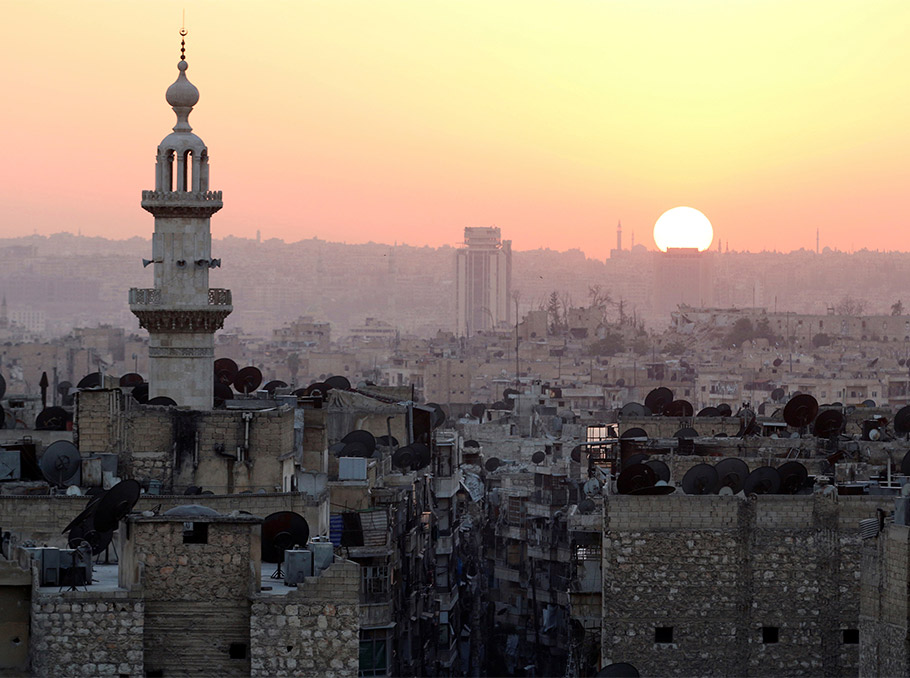
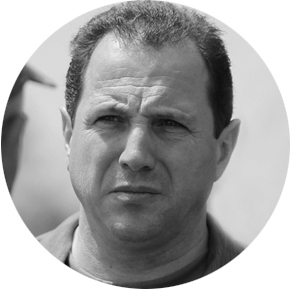

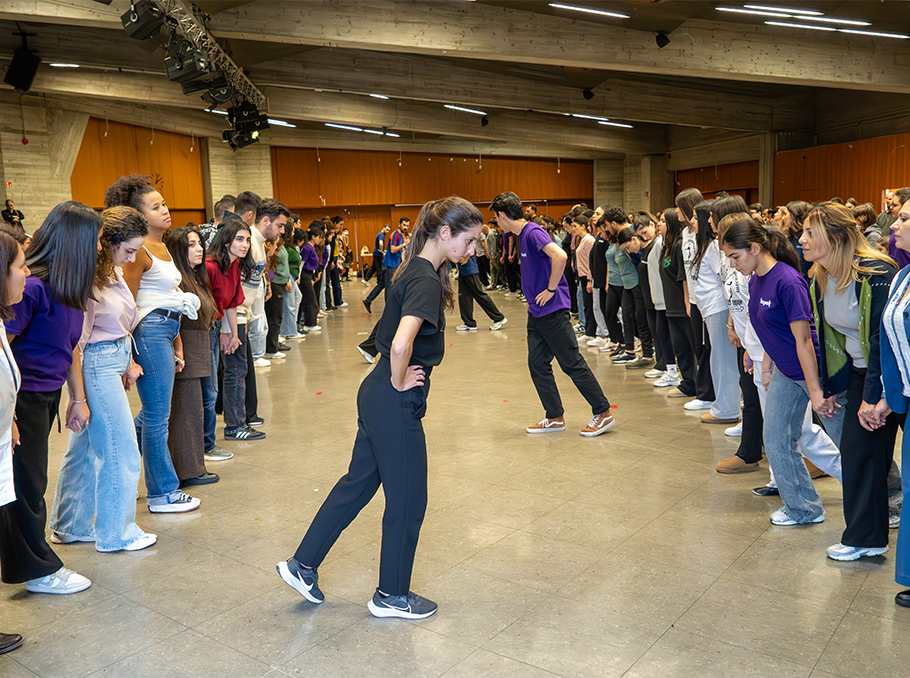
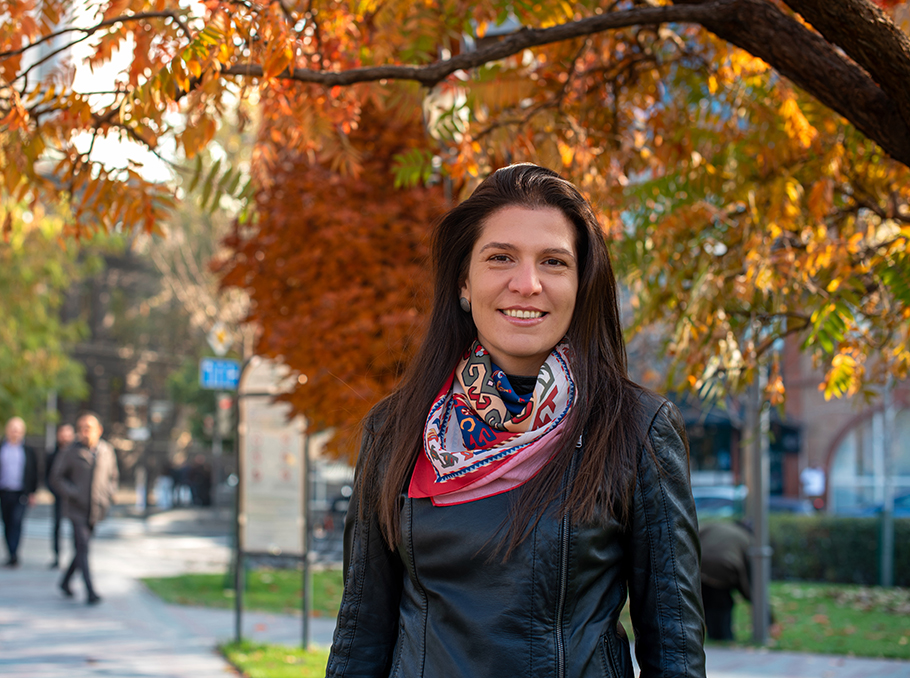
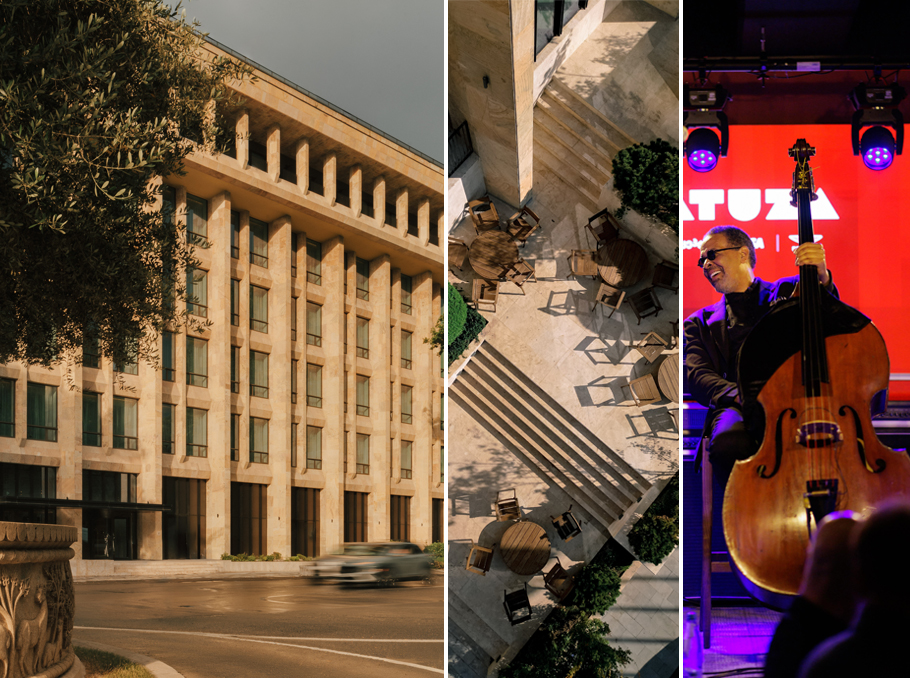
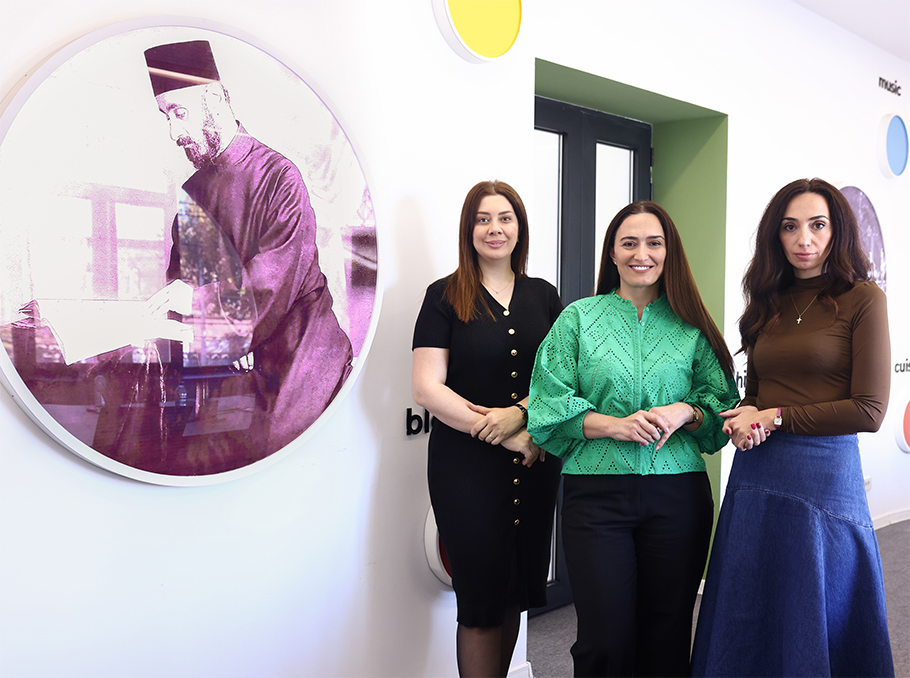
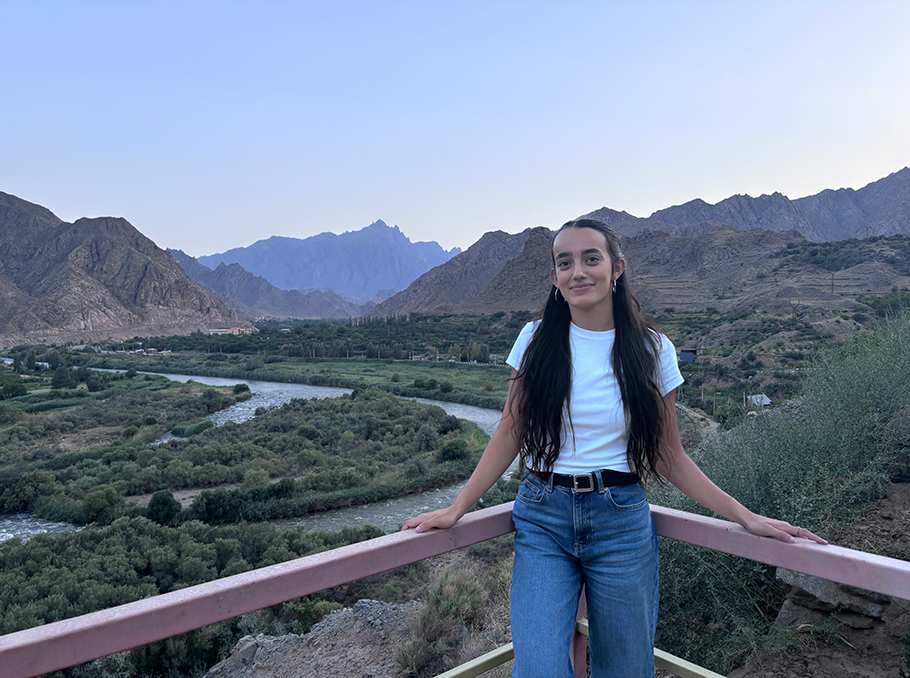






Comments
Dear visitors, You can place your opinion on the material using your Facebook account. Please, be polite and follow our simple rules: you are not allowed to make off - topic comments, place advertisements, use abusive and filthy language. The editorial staff reserves the right to moderate and delete comments in case of breach of the rules.